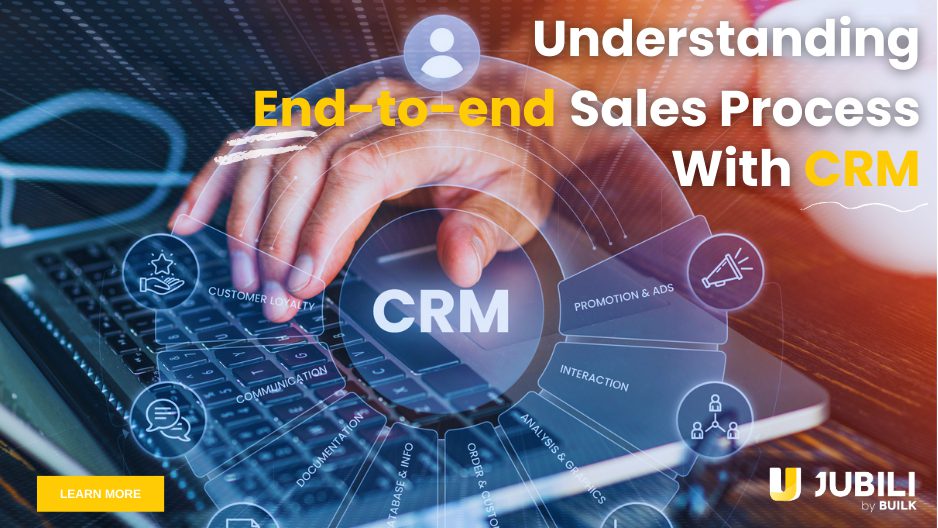Understanding The End-to-end Sales Process With CRM
We are living in a competitive world, and it is quite important for the businesses to streamline their sales processes. Along with that, it would be possible for them to stay ahead of competition. The sales process of a business starts with the identification of a potential customer. Then the sales teams will nurture the customer through a sales funnel, and eventually close the deal. Throughout this process, the CRM used by the business is playing a massive role as well. Let’s deep dive and take a look at how the end-to-end sales process of a business looks like with the CRM.
How does the sales process look like?
As the first thing, let’s take a look at how the traditional sales process of a business looks like. We categorized the sales process into multiple stages, so that you can have a clear overall understanding.
- Lead generation
The very first stage of the sales process is lead generation. This is where a business identifies potential customers, who have shown interest in a specific product or a service. Lead generation can take place through multiple channels, such as online advertisements, email campaigns, and social media.
- Lead qualification
After generating leads, it is important to qualify them. This is where the sales team confirms whether the lead is a perfect fit for the business or not.
- Sales pitch
During the sales pitch, a presentation of a product or service is delivered to the qualified leads. This can be done through proposals, presentations, and even demos.
- Negotiations
If the lead is still interested in going for the product or service, negotiation phase would start. This is where the business and lead discusses about delivery, pricing, and other terms.
- Closing
The last step of the sales process is about closing the deal. This is where the customer is asked to make a purchase or sign the contract.
How does the CRM involve in the sales process
With the understanding that you have about the end-to-end sales process, let’s take a look at the role that a CRM is capable of playing.
- Lead management
A CRM can assist to manage leads in an efficient manner. For example, it can track leads captured from multiple sources, assigning them to the sales reps, and tracking the progress of leads throughout the sales funnel.
- Sales forecasting
It is possible to use the CRM and get valuable insights about the sales pipeline as well. This will help the sales teams to forecast their sales, while identifying the possible roadblocks that can keep them away from generating more sales. They will also be able to use information and make appropriate adjustments to generate additional sales.
- Sales analytics
The CRM software can provide businesses with reports and analytics with related to the sales process. This will help a business to figure out areas of improvement. On top of that, a business will be able to make data-driven decisions.
- Sales automation
A CRM software is capable of assisting to automate numerous tasks within the sales process. Some of those tasks include appointment scheduling, follow-up emails, and lead assignment. This would eventually free up the time of sales representative. They will be able to focus more on the high-value tasks that they have to do, such as closing deals.
Final words
As you can see, it is possible to use a CRM like Jubili PH throughout the end-to-end sales process of a business. Every business out there should think about getting hold of such a CRM, which can benefit the sales process as well.
Sign up for your FREE TRIAL!

